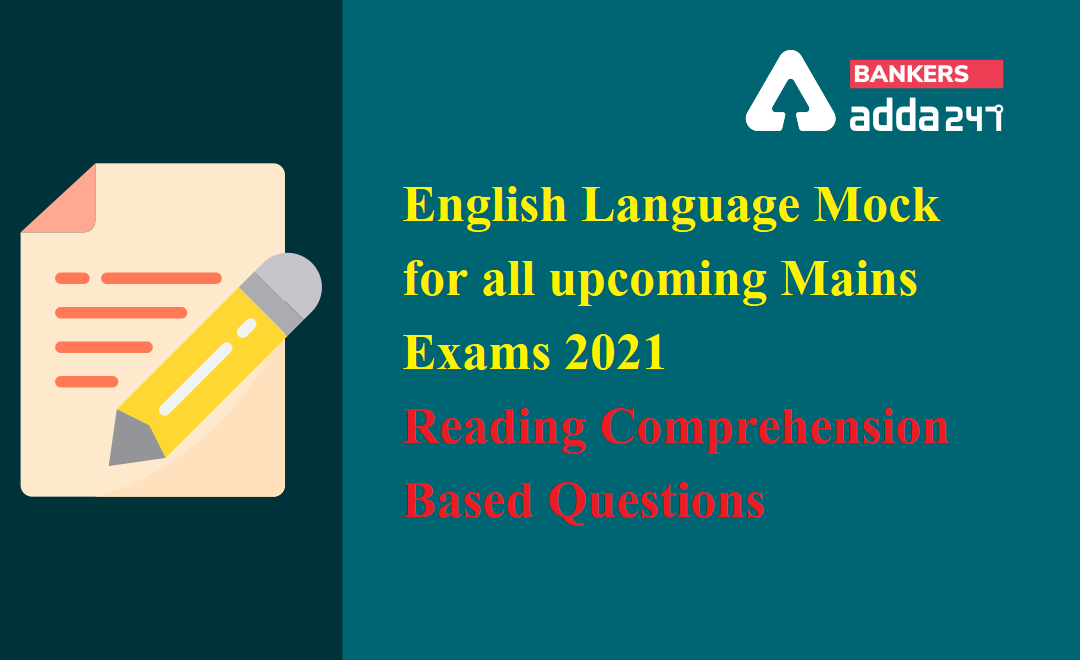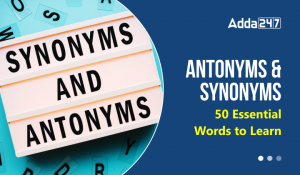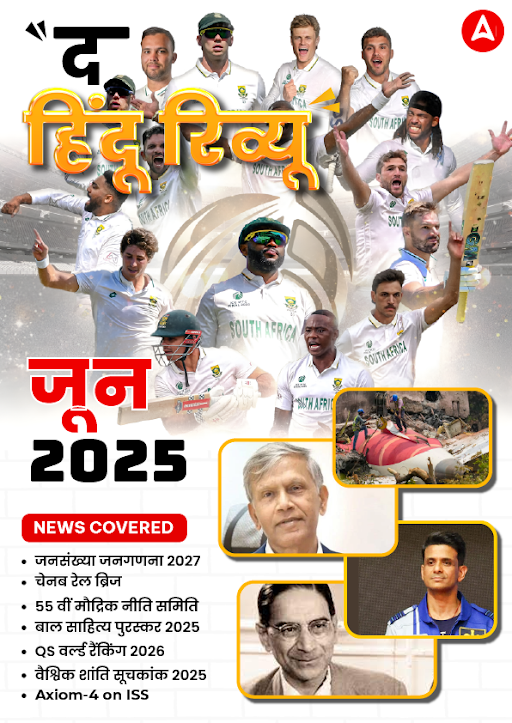Adda 247 is providing you English Language Mock for the upcoming Mains Exams 2021. In today’s English Language Practice Mock, we have Reading Comprehension Based Quiz. Stay tuned with bankersadda to get Daily English Language RC Mocks for more practice and boost your preparation for the upcoming bank exam.
- Inference and comprehensive skills related questions
- Theme based question
- Vocabulary based questions- Antonym and Synonym, word replacement
- Idioms and Phrases related question
The composer Wolfgang Amadeus Mozart’s remarkable musical talent was apparent even before most children can sing a simple nursery rhyme. Wolfgang’s older sister Maria Anna (who the family called Nannerl) was learning the clavier, an early keyboard instrument, when her three-year-old brother took an interest in playing. As Nannerl later recalled, Wolfgang “often spent much time at the clavier picking out thirds, which he was always striking, and his pleasure showed that it sounded good.” Their father Leopold, an assistant concertmaster at the Salzburg Court, recognized his children’s unique gifts and soon devoted himself to their musical education.
Born in Salzburg, Austria, on January 27, 1756, Wolfgang had composed his first original work by age five. Leopold planned to take Nannerl and Wolfgang on tour to play before the European courts. Their first venture was to nearby Munich where the children played for Maximillian III Joseph, elector of Bavaria. Leopold soon set his sights on the capital of the Hapsburg Empire, Vienna. On their way to Vienna, the family stopped in Linz, where Wolfgang gave his first public concert. By this time, Wolfgang was not only a virtuoso harpsichord player, but he had also mastered the violin. The audience at Linz was stunned by the six-year-old, and word of his genius soon traveled to Vienna. In a much anticipated concert, the Mozart children appeared at the Schonbrunn Palace on October 13, 1762. They utterly charmed the emperor and empress.
Following this success, Leopold was inundated with invitations for the children to play, for a fee. Leopold seized the opportunity and booked as many concerts as possible at courts throughout Europe. A concert could last three hours, and the children played at least two per a day. Today, Leopold might be considered the worst kind of stage parent, but at the time, it was not uncommon for prodigies to make extensive concert tours. Even so, it was an exhausting schedule for a child who was just past the age of needing an afternoon nap.
Q1. A good title for this passage would be
(a) Classical Music in the Eighteenth Century: An Overview.
(b) Stage Parents: A Historical Perspective.
(c) Mozart: The Early Life of a Musical Prodigy.
(d) Mozart: The Short Career of a Musical Genius.
(e) None of these
Q2. According to the passage, Wolfgang became interested in music because
(a) his father thought it would be profitable.
(b) he had a natural talent.
(c) he saw his sister learning to play an instrument.
(d) he came from a musical family.
(e) None of these
Q3. What was the consequence of Wolfgang’s first public appearance?
(a) He charmed the emperor and empress of Hapsburg.
(b) Word of Wolfgang’s genius spread to the capital.
(c) Leopold set his sights on Vienna.
(d) Invitations for the m
Q4. Each of the following statements about Wolfgang Mozart is directly supported by the passage except
(a) Mozart’s father, Leopold, was instrumental in shaping his career.
(b) Maria Anna was a talented musician in her own right.
(c) Wolfgang’s childhood was devoted to his musical career.
(d) Wolfgang preferred the violin to other instruments.
(e) None of these
Q5. According to the passage, during Wolfgang’s early years, child prodigies were
(a) few and far between.
(b) accustomed to extensive concert tours.
(c) expected to spend at least six hours per a day practicing their music.
(d) expected to play for courts throughout Europe.
(e) None of these
Q6. Based on information found in the passage, Mozart can best be described as
(a) a child prodigy.
(b) a workaholic.
(c) the greatest composer of the eighteenth century.
(d) a victim of his father’s ambition.
(e) None of these
Q7. Choose the word which is most nearly the same in meaning to the word ‘virtuoso’ used in the passage.
(a) amateur
(b)inexpert
(c)clumsy
(d)doyen
(e)bumbling
Practice More Questions of English for Competitive Exams
Q8. Choose the word which is most opposite in meaning to the word ‘utterly’ used in the passage.
(a)partly
(b)implicitly
(c)plumb
(d)unreservedly
(e)solely
Directions (9-15): Read the passage carefully and answer the questions given below it. Certain words/phrases are given in bold to help you locate them while answering some of the questions.
Since 1947, Indians have not spoken out so strongly and clearly for a completely new brand of people running government. Mercifully, there are no ministers educated abroad. Thankfully, none of them has been brainwashed at Harvard, Stanford, Cambridge, the World Bank or the IMF subtly forcing expensive Western solutions on typically Indian problems at the cost of the poor. Look what high-powered, foreign-returned degree-wallahs have reduced this country to. They wasted opportunities show the inner strength of what is essentially India because they never really knew their own people living in Bharat. In the eyes of the world, we have lost our respect, dignity and identity.
All the ministers now have gone through average government schools. Some have never been to college. Many have experienced poverty, exploitation, injustice and discrimination at some point of time in their lives. It is truly the first barefoot government ever to be voted into power independent India. Where else in the world would you have a one-time tea-seller on a railway station becoming prime minister, shaping the destiny of more than one billion people?
The first example the Modi government must set is by drastically reducing the perks and privileges of MPs. Free power, food, housing, travel to those whose personal asses run into crores and a Rs. 2 crore annual fund for development for over 500 MPs is costing the exchequer nearly Rs. 2,000 crore. Only the prime minister will be able to make it happen and, at the same time, stifle any dissent from BJP MPs. The time is now.
No other government in the world has a Class 12-pass woman minister speaking as an equal to almost 120 heavily qualified, on paper, vice chancellors (90 per cent male). Today, as we judge them, the VCs are all too intellectually and morally fatigued. There is something dreadfully wrong with an education system that produces graduates from even private, expensive, snobbish schools and colleges who are still prejudiced about caste, class, religion, sex and colour. These “graduates”, who roam the streets of small towns and cities by the thousands, call themselves “educated”, practise the worst forms of cruelty, slaver) and crimes against humanity, against society and in their own families. Indeed, some of them rose to the level of their incompetence by becoming ministers in previous governments, reinforcing the status quo, wasting vast public resources by implementing silly Western ideas, listening to foreign-returned “experts” and making a hopeless mess of this country. The tragedy is that they cannot see the colossal damage they have done to the very fabric of this country.
Q9. Which of the following statements highlights the dark side of foreign-educated politicians? Answer in the context of the given passage.
(A) A large number of students educated in schools and colleges of repute practise the worst form of cruelty, slavery and crimes against humanity.
(B) Some of the foreign-educated students who became ministers in previous governments wasted huge public money implementing silly Western ideas.
(C) Private educational institutions charge huge capitation fee but their products are not up to mark.
(a) Only (A)
(b) Only (B)
(c) Only (C)
(d) Only (A) and (B)
(e) All (A), (B) and (C)
Q10. What is/are true about the ministers of the new government formed at the Centre?
(a) Some of them are highly qualified and foreign degree holders.
(b) Only a few of them are the products of average government schools.
(c) There are some ministers who have never been to college.
(d) Our prime minister is a postgraduate in Political Science.
(e) All the above
Q11. Which of the following is not one of the characteristics of the ministers of the last government at the Centre?
(a) Some of the ministers of the last government at the Centre were educated abroad.
(b) The ministers of the last government were brainwashed at foreign universities to suggest Western solutions for Indian problems.
(c) The Western-degree-holder ministers coming from the elite class never knew their own people living in Bharat.
(d) Though the ministers of the last government were Western-educated yet they had great concern about the gripping problems of India.
(e) None of the above
Q12. Which of the following statements is based on the facts mentioned in the passage?
(a) The present government aims at reducing the perks and privileges of MLAs.
(b) There is something wrong with those educational institutions that produce graduates who remain prejudiced about caste, class and gender.
(c) The elitist education policy has still managed to make students humble and sensitive towards humanity.
(d) None of the present ministers has gone through poverty, injustice, exploitation and discrimination.
(e) All the above
Q13.What is the perception about India in the eyes of the world?
(a) That India is a developing nation
(b) That we don’t have self-respect, dignity and identity
(c) That India is still a country of snake charmers
(d) That India is an educationally backward nation
(e) That India is a technically advanced but financially backward country
Directions(14-15): Choose the word/group of words which is MOST SIMILAR in meaning to the word/ group of words printed in bold as used in the passage.
Q14. Destiny
(a) objective
(b) prospect
(c) future
(d) concept
(e) choice
Q15. Perks
(a) benefits
(b) candy
(c) loss
(d) constraints
(e) problem
Solutions
S1. Ans. (c)
Sol. This title most nearly captures the main idea of the passage and the author’s purpose in writing the piece. The other choices either are not mentioned or are secondary ideas in the passage.
S2. Ans. (c)
Sol. The passage clearly states that Wolfgang took an interest in the clavier when his sister was learning to play the instrument.
S3. Ans. (b)
Sol. In the second paragraph, the passage states that Wolfgang’s first public appearance was at Linz and that after this concert, word of his genius traveled to Vienna. This paragraph also states that Vienna was the capital of the Hapsburg Empire.
S4. Ans. (d)
Sol. The passage does not say anything about Wolfgang preferring one instrument to another.
S5. Ans. (b)
Sol. The third paragraph states that at the time, it was not uncommon for child prodigies to have extensive concert tours. The other choices are not supported by the information given in the passage.
S6. Ans. (a)
Sol. The main point of the passage is to describe Mozart’s experiences as a child prodigy, or a highly talented child. Choices (b), (c), and (d) are not mentioned in the paragraph.
S7. Ans. (d)
Sol. Virtuoso means a person highly skilled in music or another artistic pursuit. Doyen means the most respected or prominent person in a particular field.
S8. Ans. (a)
Sol. Utterly means completely and without qualification; absolutely. Partly means to some extent; not completely.
S9. Ans.(d)
Sol. Refer to the last paragraph of the passage. “These “graduates”, who roam the streets of small towns and cities by the thousands, call themselves “educated”, practise the worst forms of cruelty, slaver) and crimes against humanity, against society and in their own families.”
S10. Ans.(c)
Sol. Refer to the second paragraph of the passage. “Some have never been to college.”
S11. Ans.(d)
Sol. Though the ministers of the last government were Western-educated yet they had great concern about the gripping problems of India.
S12. Ans.(b)
Sol. Refer to the last paragraph of the passage. “There is something wrong with those educational institutions that produce graduates who remain prejudiced about caste, class and gender.”
S13. Ans.(b)
Sol. Refer to the first paragraph of the passage. “In the eyes of the world, we have lost our respect, dignity and identity.”
S14. Ans.(c)
Sol. Destiny means the events that will necessarily happen to a particular person or thing in the future. So, future is the word which is similar in meaning to it.
S15. Ans.(a)
Sol. Perks means an incidental benefit awarded for certain types of employment (especially if it is regarded as a right). So, benefits is the word which is similar in meaning to it.



 Practice for English Section: 15 Cloze T...
Practice for English Section: 15 Cloze T...
 English Language Notes for Competitive E...
English Language Notes for Competitive E...

